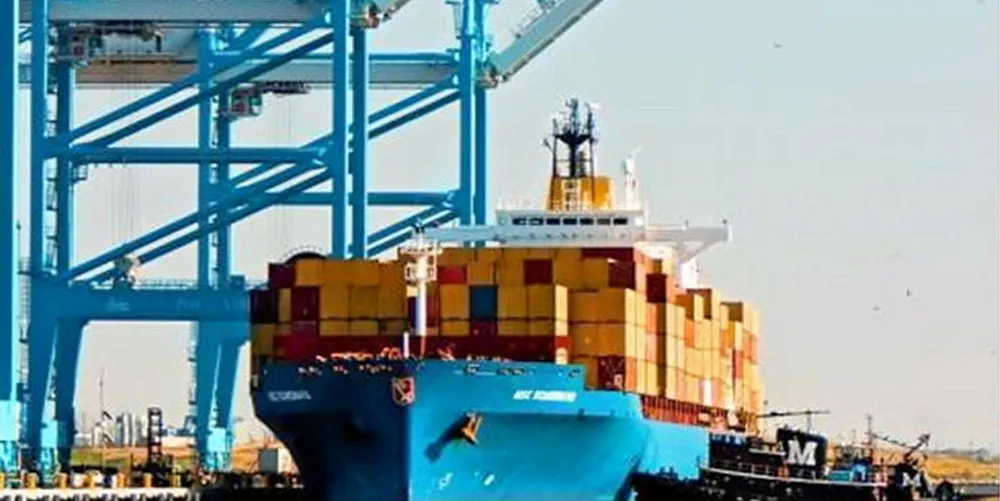Iberdrola’s Avangrid touts $4.8bn benefits for uncontracted Kitty Hawk offshore wind
Project remains without offtake as state regulators mull monopoly status of Dominion Energy in Virginia market

US renewables giant Avangrid released a report touting up to $4.8bn in economic impacts from its 2.6GW Kitty Hawk project that remains without offtake as Virginia regulators mull opening offshore wind procurement to market competition.
“Kitty Hawk Wind is a transformational opportunity for Virginia and offers significant economic benefit to the City of Virginia Beach and the entire Hampton Roads region,” said Avangrid CEO Pedro Azagra. Avangrid is majority owned by Spanish utility Iberdrola.
Its report found that Kitty Hawk could generate some $1.2bn in economic activity in Virginia Beach alone, including $275m in tax revenue while creating 12,000 jobs, mostly in the Hampton Roads region.
Avangrid has been developing the project in federal waters some 36 miles (58 km) off Virginia Beach for five years but has so far failed to gain an offtake contract in the state’s tightly regulated power market.
The project straddles the North Carolina boundary, which has set an 8GW by 2040 sector target and has two projects in early-stage development in the Carolina Long Bay but has done little to advance the sector. Avangrid confirmed its focus is on Virginia.
Virginia exception
In contrast to the deregulated power markets in most US states with active offshore wind development, utility regulator State Corporation Commission (SCC) sets power prices and oversees new generation investments for its vertically integrated power companies, including Dominion’s 2.6GW Coastal Virginia Offshore Wind (CVOW) array under development.
The Mid-Atlantic state is a pioneer in offshore wind and Dominion’s 12MW CVOW-pilot installed in 2020 were the first operational turbines in federal waters. Virginia mandates 5.2GW of offshore wind capacity operational by 2035 but has yet to hold a competitive procurement for offshore wind.
Dominion’s monopoly over offshore wind development is currently under debate in the state legislature, with Avangrid and renewable energy advocates recommending competitive procurement for its next tranche.
CVOW success
The procurement debate is complicated by the ongoing success of CVOW amid the industry implosion last year that saw half of all competitively contracted capacity in the US withdrawn as skyrocketing inflation and financing costs ruined project economics.
CVOW remains among a select few projects that remain on budget at $9.6bn with an estimated levelised cost of energy (LCOE) of $77/MWh, less than previous estimates of $80-90/MWh and well below the state cap of $125/MWh.
Dominion signing some $7bn in supplier contracts by the end of 2021, before the onset of inflation.
“Bottom line, the Virginia model for offshore wind is working and the (competitive) model is failing,” Dominion spokesman Aaron Ruby was quoted in January saying. “If it ain’t broke, don’t break it,” he added.
Federal regime
Bringing in outside developers might be necessary, though, as Dominion’s CVOW has essentially maxed out its lease area and would need to acquire additional acreage to meet Virginia's sector mandate.
Moreover, with the clock ticking and the federal permitting regime taking an estimated 8-10 years, a new project off Virgnia’s coast would be hard pressed to meet the state’s goals.
Kitty Hawk, by contrast, has already made significant progress and is expected to be fully approved by the end of this year or early 2025, according to federal permitting dashboard.
“We would look at the Kitty Hawk project to be operational by the early 2030s in time to meet Virginia's targets,” Kimmell said.
Avangrid is joint venture partner with Copenhagen Infrastructure Partners in US offshore wind flagship Vineyard Wind 1 under construction off Massachusetts and has several other projects in development.
The Virginia state legislature has tabled any action on Dominion's monopoly on offshore wind until early next year.
(Copyright)